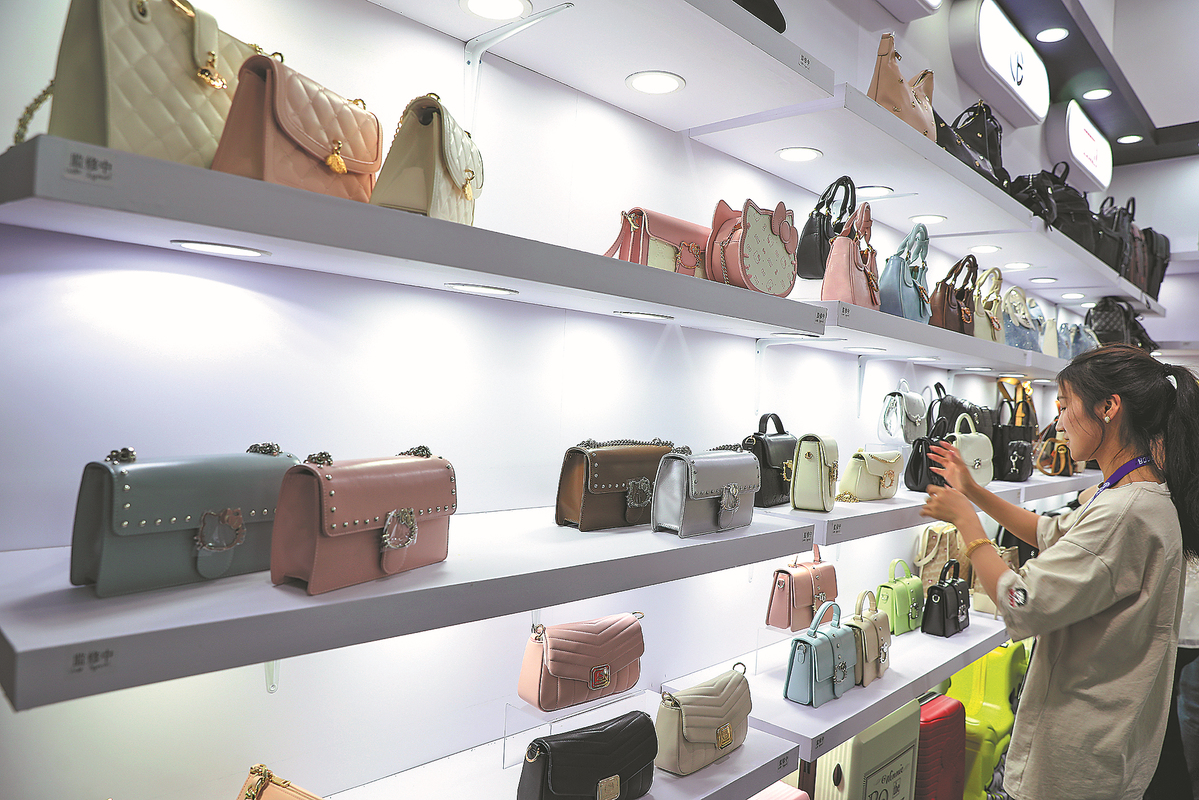Local brands bagging bigger piece of luxury market


China's domestic handbag brands are making a significant impact in the premium market. Despite many unit prices exceeding 1,000 yuan ($138) — and some even soaring beyond 10,000 yuan — interest among consumers remains robust.
Brands such as Songmont and Duanmu are not only experiencing impressive sales, but also successfully positioning themselves as formidable competitors to established international luxury labels.
Once perceived primarily as budget-friendly options, Chinese handbag brands are undergoing a substantial transformation, redefining their image through a combination of quality craftsmanship, compelling storytelling and an expanding retail footprint in high-traffic areas.
Christine Cui, a fashion insider based in Shanghai, highlighted the enormous development potential for these and other domestic handbags.
"Consumers are no longer chasing logos, but are more focused on value for money. Our domestic handbags are on par with international light luxury brands in terms of aesthetics and materials. If international luxury brands do not innovate in design and continue to emphasize only their brand logos, they will inevitably face significant challenges," Cui said.
Market data as of February 2025 illustrate this evolution — seven domestic brands are now among the top 15 handbag labels on Tmall for products priced over 1,000 yuan, directly challenging well-known players like YSL and Gucci.
Among them, Songmont and Qiuzhen closely follow Coach in sales rankings, while brands like Grotto and Songmont have surpassed the 2,000 yuan threshold, showcasing a foray into the premium segment.
To consolidate their presence in this competitive landscape, domestic brands are tapping into international exposure, enlisting renowned designers and enhancing their craftsmanship.
For instance, Dissona made headlines by hiring former Hermes artisan Thomas Maurice, which allowed Dissona to become the first Chinese leather goods brand to showcase at Milan Fashion Week in 2017.
Songmont highlighted its offerings at Paris Fashion Week 2024 through a pop-up exhibition, aligning closely with global luxury trends.
Beyond craftsmanship, these brands are forging emotional connections with consumers through narrative-driven marketing strategies.
Songmont's podcast, "Sound Under the Mountain", features insightful conversations with female influencers, reinforcing the brand's intellectual and cultural identity. Meanwhile, Dissona incorporates traditional Chinese bamboo weaving into its designs, appealing to consumers who value heritage and artistry.
Initially starting as online-first labels, many of these brands have transitioned into upscale retail locations, placing themselves alongside established international luxury houses. Their retail sites are thoughtfully designed with immersive themes. For instance, Songmont's Chengdu IFS outlet in Sichuan province recreates a serene bamboo valley, while its Shanghai Huaihai Road store features flowing curves reminiscent of wind patterns through a valley, and its Shenzhen, Guangdong province venue reflects the patterns of ocean waves.
Zhang Qi, a Beijing-based entrepreneur in her 40s, describes the Songmont store as more than just a retail space.
"It is a relaxing Zen cafe where I can hang out with my friends. I enjoy the tranquility and Chinese style the space embodies, along with the philosophy that the brand represents."
Celebrity endorsements have played significant roles in enhancing the desirability of these brands. For example, Songmont has partnered with actress Wen Qi and tennis star Li Na to boost its visibility. Additionally, the brand has collaborated with Kelly Rutherford, best known for her role in Gossip Girl, leveraging her association with "old money" aesthetics to elevate its aspirational appeal globally.
The rising popularity of domestic handbag brands can be attributed to their ability to meld style with functionality.
Domestic brands have capitalized on the popularity of "hobo bags" by offering stylish, large-capacity options suitable for both professional and casual environments.
For instance, Songmont's store on Tmall boasts 1.79 million followers, with its signature hobo bag priced at 2,280 yuan. The product's image of relaxation and easy functionality has resonated with many white-collar urban women, making it their go-to bag choice.
Moreover, many consumers view these handbags as a sophisticated alternative to international luxury brands, free from the so-called "logo tax". For some buyers, opting for a domestic handbag serves as a meaningful statement of identity.
Affluent professionals in first-tier cities consider these brands to be subtle, refined alternatives to overt luxury logos, making them particularly suitable for corporate settings. Meanwhile, younger consumers are increasingly drawn to brands like Grotto for their unique appeal and fresh aesthetics.
Despite the rapid growth of China's high-end handbag market, long-term success will hinge on these brands' ability to transcend marketing techniques and cultivate enduring trust with their audience, said fashion insider Cui. "We've seen the innovations and breakthroughs from Coach this season as well. The rise of domestic peers has certainly pushed up the level of the industry."




































